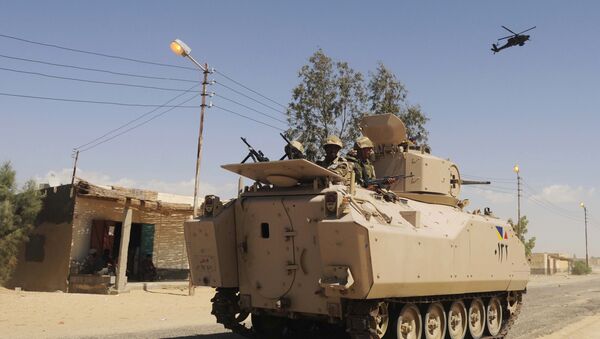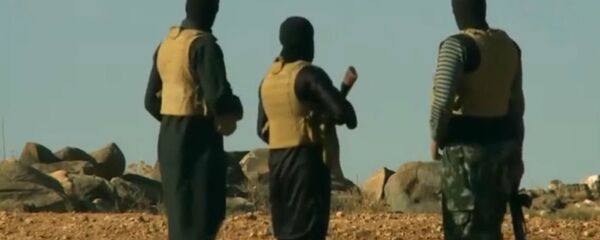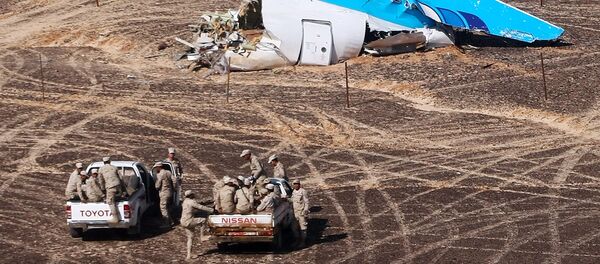Ansar Beit al-Maqdis is responsible for the downing of the Russian A321 passenger jet over the Sinai Peninsula on October 31 that killed all 224 people on board, US Central Intelligence Agency (CIA) Director John Brennan said earlier on Thursday.
At present, the US-led Multinational Force and Observers (MFO), which was deployed to bases there to monitor compliance with the 1979 treaty between Egypt and Israel, is the most effective force there, Cobban noted.
However, this force was not deployed to have any combat effectiveness or direct impact against Ansar Beit al-Maqdis, which is an Egypt based affiliate of the Islamic State (ISIL, or Daesh), Cobban observed.
"The MFO units are largely confined to their bases, though they have access to advanced sensing equipment throughout the Sinai, which is probably the source of Washington's information about the downing of the airliner," she said.
Cobban pointed out that the Sinai was not the only zone bordering Israel where the Islamic State has been able to establish itself.
"There are also Islamic State units in parts of the Golan Heights neighboring the Israeli-occupied zone there — and there is significant evidence of Israel actually coordinating with the Islamic State there," she pointed out.
The governments in Cairo and Damascus had to be supported by outside powers to enable them to eliminate the growing Islamic State enclaves in both countries, Cobban insisted.
"In each case, an important first step to end the consolidation of the Islamic State enclaves would be to support the re-establishment effective rule and control of the respective national authorities (Egyptian, Syrian) over these areas. It will be interesting to see how much Washington could support that," she said.
"No one knows how big the group is, but we do know that they are extremely active and highly effective. They have acquired impressive technical expertise by virtue of their alliance with the Islamic State and therefore are likely to cause more damage still," Lazare warned.
The United States and Russia needed to resolve the conflicts that are fueling the Islamic State's growth, most particularly the Saudi-led assault on Syria and Yemen as well as Israel's controversial occupation of much of the West Bank, Lazare added.



